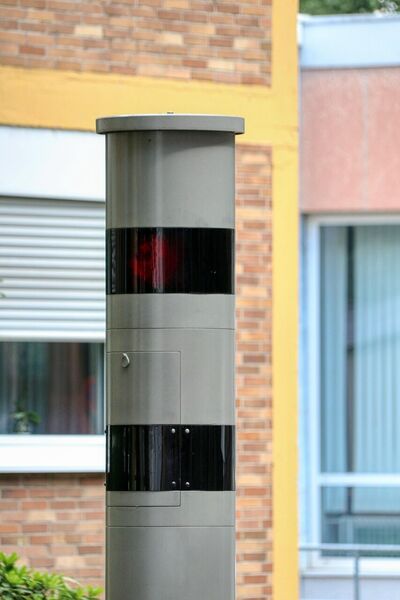News
Must the raw data from the speed camera be stored?

Must the raw data from the speed camera be stored?
Everyone knows the scenario: you are driving home from work in a good mood, suddenly see a fixed or mobile speed camera, and hastily check the speedometer to see if you have kept to the speed limit. Sometimes you don't even need to look at the speedometer because the flashing red light was clear enough. As a rule, the offender receives a fine and other sanctions. The Federal Court of Justice (BGH) is now expected to clarify exactly what grounds can be used.
There are several ways of challenging these notices.
In Saarland, the raw measurement data is of great importance.
Normally, the standardised measurement procedure applies, i.e. the so-called raw measurement data are neither stored nor transmitted. In Saarland, however, they are, and if they are not transmitted, the person concerned can take legal action against the decision.
What exactly are raw measurement data?
Raw measurement data is the information recorded directly by the measurement device from which the final speed value is calculated (examples: distance values, time stamps and sensor data). Most devices do not have this feature, or the data is deleted immediately after recording. In most cases, however, this is not necessary.
Problems can arise!
A driver was caught speeding at 35 km/h and fined 250 euros. He took the case all the way to the Higher Regional Court in Saarland, Germany, because the tachograph that recorded his speed was an officially approved device in Germany. As a result, only the standardised procedure was used and the raw data was not stored. This was precisely the reason why the person concerned took legal action against the decision (Saarland Higher Regional Court, decision of 10 April 2025, ref. 1 Ss (OWi) 112/24). This has been a point of contention before, and in this case, too, the person was found to be in the right because he had the right to a fair trial and the technical device was not reliable because it was not verifiable. This should be guaranteed.
But for the time being, the BGH can deal with the matter. The Saarland Higher Regional Court is of the opinion that the data cannot be used due to the lack of raw measurement data. However, this is not the opinion of the other higher regional courts, which would come to a different decision. The Federal Court of Justice (BGH) will now have to decide in order to create a uniform, nationwide regulation.
On the one hand, the speed cameras used in the standardised measurement procedure are considered to be very reliable in their results. However, the results of these devices can be disputed. In Saarland, however, this special position is leveling out, because as soon as a speed camera does not store the raw measurement data, the result cannot be used and if the complainant objects, he generally has to be granted justice.
What will the BGH decide?
Either the current special rights of the Saarlanders will be abolished, or their rights will be weakened by allowing the use of other speed cameras. If the BGH upholds the claims of the Saarland OLG, all other OLGs will have to follow suit, but the real question is whether this would be practicable. Such an approach would open up a huge number of legal avenues of attack and thus a very significant amount of additional work in the process.
Source: Pixabay/ speed-camera-5279648_1280 (1)
